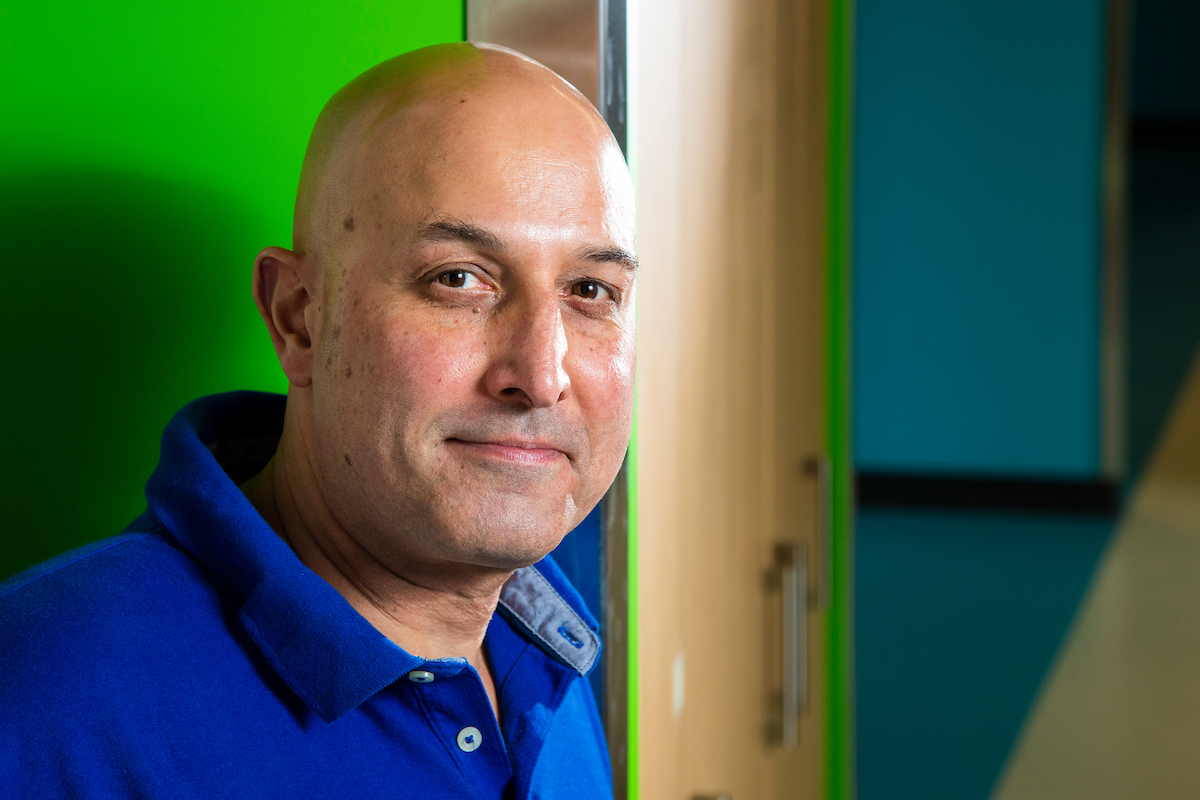
Anthony Singhal, the new Chair of the Department of Psychology, wants to focus on faculty renewal and growing the graduate student population within the department. Photo credit: John Ulan.
No stranger to mastering the art of multitasking-it's the subject of much of his research, along with attention, distraction, and visual motor control-notable neuroscience researcher, esteemed educator, and psychology professor Anthony Singhal has just stepped into the role of chair in the Department of Psychology. Singhal takes over from Professor Chris Sturdy.
Serving roughly 13,000 students, the Department of Psychology represents roughly one-third of the entire undergraduate student population at the University of Alberta, ranking near the top 100 in the world for the study of psychology.
"We are now one of the best young cognitive neuroscience groups in the country," says the chair of the group that includes Singhal himself, plus Jeremy Caplan and Kyle Mathewson from the Faculty of Science and Sandra Wiebe, Kyle Nash, and Ben Dyson from the Faculty of Arts.
With it's cross appointment between the Faculties of Arts and Science, the department is unique in Canada, with roughly half of its 33 professors appointed in each of the two faculties, reflective of the holistic approach to the study of psychology.
One might reflect on those respective numbers-33 profs to 13,000 students-and wonder how they get it all done, even with the considerable and valued work of sessional and faculty lecturers. Faculty renewal will serve as a core focus for Singhal, who points to the recent appointments of some fresh faces-notably Lauren Guillette, Peggy St. Jacques, Ben Dyson, and Dana Hayward-as strong signs for future growth for the department.
He is also keenly focused on growing the graduate student population, what he refers to as the foundation of a research program. Singhal most recently served as associate chair (graduate) for the department, and under his tenure, the graduate student population has significantly grown almost 40 per cent, moving from 49 to 68 in just four years.
"We are one of the largest and best universities in Canada, and we want the psychology profile to be even bigger."
Singhal's interdisciplinary approach to academia also informs his approach to his administrative responsibilities. As a researcher who studies attention and distraction, Singhal is well aware of both the pitfalls and opportunities for successfully balancing competing responsibilities. And much like he seeks the intersections in his research, he sees his administrative and academic responsibilities informing each other.
"There are certain things you can't do together. Your brain can't handle that kind of cognitive load," said Singhal. "But good multitaskers plan for the gaps."
Beyond his administrative responsibilities and active research lab (he currently supervises seven graduate students and postdoctoral fellows plus 12 undergraduate students), Singhal actively collaborates with an industry partner, DriveAble, an Edmonton-based driver assessment company.
Reflective of his strong internal drive, driving has been a consistent theme throughout Singhal's life. The avid car enthusiast even once drove a cab to pay for his tuition. His graduate work saw him working with the Canadian Space Agency to develop a multi-tasking instrument for testing on the space station for eventual human adaptation for a human mission to Mars.
With Singhal's vision, drive, and focus on growth, it is clear the sky's the limit for the Department of Psychology.